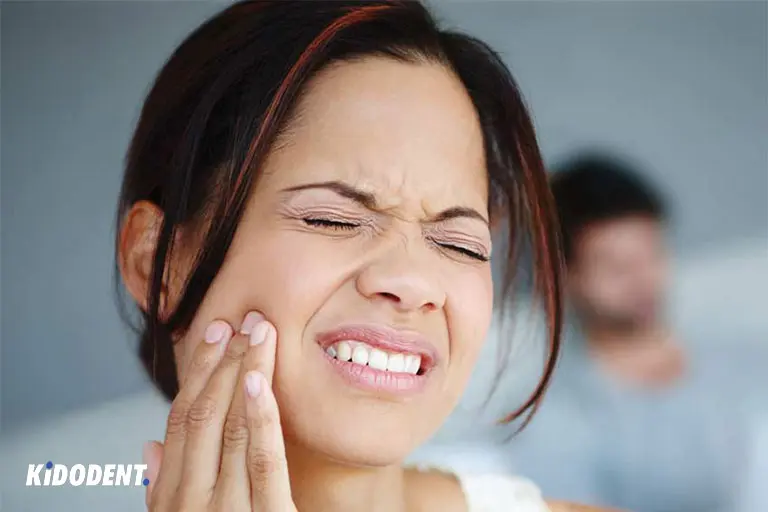A root canal is an effective and major procedure that involves deep cleaning of the tooth’s roots, which can irritate the nerves and surrounding tissues. Having some pain after it is expected. The goal of root canal treatment is to relieve and avoid pain caused by decayed, infected, or fractured tooth. It is common to experience mild to moderate pain for a few days after a root canal. However, if you feel severe pain after your treatment, it can mean that something has gone wrong with your tooth or treatment. You will need to see your dentist since there may be additional cleaning of the canals or other procedures required.
How much pain can you expect after a root canal?
You may experience some mild to moderate pain, sensitivity, and soreness after a root canal treatment. You might feel that the area around the tooth is still tender and sore. This is due to the pressure on the nerves and tissues during the procedure
Before the procedure begins, your dentist will apply a local anesthetic to numb the tooth and the surrounding area. You shouldn’t feel pain during the procedure. Your dentist will then make a small opening on the tooth crown on top to get access to the dental pulp. They should clean out the diseased pulp from the pulp chamber and root canals. As the effects of the numbing agent wear off, you might feel some pain and sensitivity.
The pressure of the cleaning process on the tooth can cause some pain and discomfort later until your body heals. But your pain or sensitivity is not meant to last long and should go away a few days after your root canal.
It is especially important to take good care of your mouth and the tooth that underwent root canal right after your treatment. Good oral hygiene will help manage your pain. Use a soft-bristled toothbrush to brush your teeth when your dentist says you can resume brushing again.
Avoid chewing hard foods immediately after your treatment. Also, if your tooth and gums are still numb, be careful to avoid eating since you might accidentally bite hard on your tooth or damage your tongue or inner cheeks.
When to visit your dentist?
Root canal recovery time doesn’t take long and your pain or swelling should reduce within days. Like any dental procedure, the body requires some time to heal. If the pain you are experiencing is severe and unbearable or does not get better, you should see your dentist immediately.
Symptoms like severe pain, prolonged swelling or soreness, and fever can indicate a recurrent infection following a root canal. You must call your dentist or endodontist to prevent the dental issue from getting worse and provide you with the best treatment option.
Endodontic problems
Your dentist should rule out infection or any other possible damage like tooth cracks and root fractures that may be responsible for your pain. Endodontics, the medical name for root canal treatment, can be challenging at times. The canal system in teeth can be complicated, especially with those that have multi roots. The root canals may be calcified or hard to find, and there can be extra canals that can be missed during cleaning.
Therefore, it is possible that the pulp tissue is not fully removed and disinfected. All these can lead to the risk of infection, which can lead to pain following a root canal. In that case, your dentist or endodontist (a dentist who specializes in root canal) can plan for retreatment to ease your discomfort.
In more severe situations, retreatment may not work. Or, if the tooth has some form of serious damage like vertical fractures, the only option is to remove the tooth.
A high bite or malocclusion
Dentists will restore a tooth undergoing a root canal with a crown. These dental crowns, which can be made of porcelain, metal, gold, or zirconia, will protect the tooth from further damage and bring back its normal function. It can take time before you get used to the crown in your mouth.
Sometimes, the filling or the crown may cause a high bite or uneven occlusion. Your tooth feels a bit high, so it can lead to increased stress or pain in the tooth when you bite down. Your dentist should see if the tooth requires adjustment to alleviate your problem.
How to prevent root canal pain at home?
Make sure to follow your dentist or endodontist’s instructions carefully after getting a root canal treatment. Call them and don’t wait if you are having serious symptoms, including severe pain.
Although root canal pain will go away soon, taking care of your teeth is a must to minimize pain and speed up your recovery.
- Consult your dentist to use over-the-counter pain medication. OTC pain relievers should ease up your symptoms.
- Avoid eating very hard foods, especially during the days right after the root canal treatment.
- Avoid biting down on your treated tooth until the pain improves.
- Brush your teeth twice a day using a soft-bristled toothbrush. Be gentle while cleaning your teeth and take extra care, especially around the tooth that underwent root canal.
- Floss daily to remove food particle and reduce the risk of infections.
- The permanent crown or other permanent restorations can be placed on your tooth in a follow-up session. Until then, be careful around the temporary filling as it can be vulnerable and may break.
- Eat a healthy diet and cut down on sugary foods and drinks.
- Have regular dental visits for thorough teeth cleaning and check-ups.
